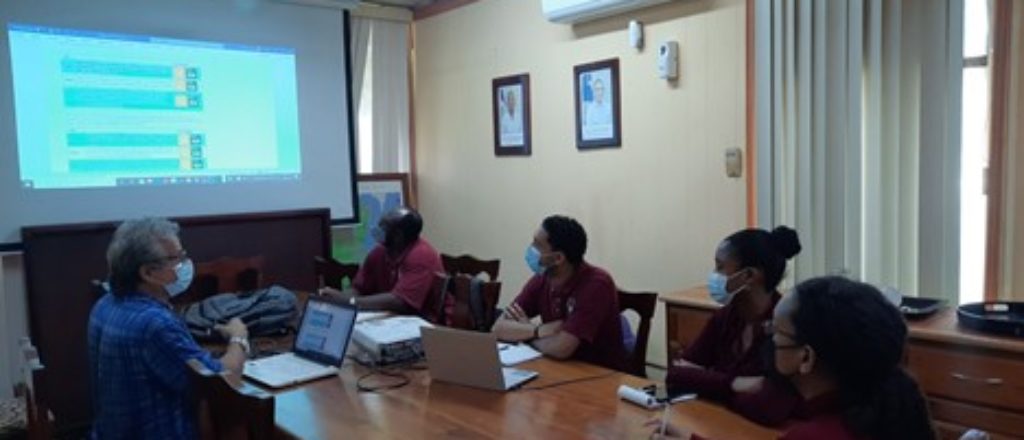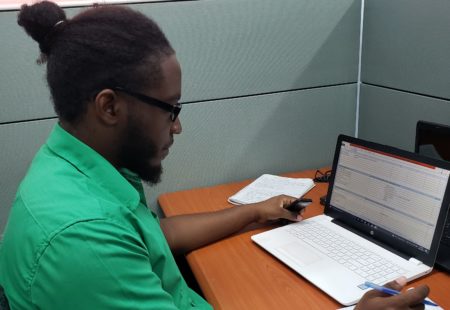My Experience in the Energy Sector: What I Want Belizeans to Know

By: Nia Gentle
Coming back home to Belize, I was confused as to what my plans were. I just finished my degree at University of the West Indies Cave Hill Campus, and I never thought about where to apply for jobs especially during a pandemic. One of my past lecturers sent me an email outlining the Caribbean Centre for Renewable Energy and Energy Efficiency’s need for an intern in Belize. Given my growing interest in sustainability during my final year, I thought the opportunity would be a great one, so I took a chance and applied. To my surprise, I got an email stating that I got the internship.
I was excited for this short endeavour, but I did not know what to expect. I never heard about Belize’s energy sector. I was clueless as to what our policies are, how we supply energy to our people and so on. Under the Ministry of Public Utilities, Energy and Logistics is where my journey started. Although the Energy Unit is small, I can say each person is not only knowledgeable, but has genuine care about the sector. Since starting the internship, my supervisor, Geon Hanson, and his colleagues have been very helpful. I may be a lady of few words, but I do listen to what they say. I have learned so much about the sector in such a short amount of time; I am grateful I had the pleasure to work with such kind and intelligent people.
My research included learning about different sections of the sector such as workforce, key stakeholders, and policy frameworks, and learning more about Belize’s plans on achieving sustainability. Learning what goes behind providing electricity for Belize gave me a deeper understanding and appreciation for all those who work in the industry. The biggest misconception that we have here in Belize is that we are completely reliant on Mexico to provide us with electricity, which is not the case. Not only do we have local independent power producers, but these producers provide renewable energy sources that take up 59% of our total installed capacity. Upon hearing the Intergovernmental Panel on Climate Change’s (IPCC) reported climate change projections, it was refreshing to have background knowledge on Belize’s sector, and how we plan on combating these issues.
Everything I have learned thus far is accessible to the public, and I do implore Belizeans to have a greater interest in this topic. The Nationally Determined Contributions (NDCs) is the country’s plan on reducing national emissions and adapting to climate change. Currently, Belize has an NDC that is being updated in hope to combat this global issue in various sectors in the country. Any social justice issue starts with anger because someone feels deprived of their basic human rights; I know there are a few people who would not find the connection between social justice and the climate change crisis, but I can tell you that the effects of climate change can deprive us of necessities.
The Energy Unit is built upon five pillars: Renewable Energy, Energy Efficiency, Clean Energy Production, Governance and Infrastructure. I do believe developing the sector is not only about providing clean and sustainable energy to the country but taking the responsibility of showing the country that we should have a deep appreciation when taking care of the land we live on. I encourage Belizeans to learn more about the Energy Unit, their mission and policies that they want for the sustainable development of our country.



